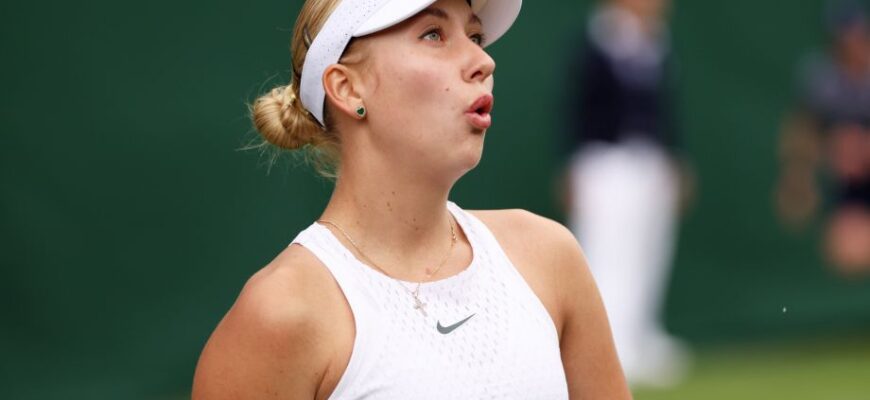Following a period of intense rehabilitation, Russian tennis sensation Anastasia Potapova offers an encouraging update on her physical condition, signaling her readiness to rejoin the competitive circuit on hard courts after a challenging injury setback.
For professional athletes, the specter of injury is an ever-present reality, a formidable opponent that often proves more demanding than any on-court rival. Russian tennis player Anastasia Potapova, currently ranked 42nd in the world, recently navigated this challenging terrain. After sustaining a muscle injury during a grass-court tournament in Berlin in mid-June, Potapova was forced to make the difficult decision to withdraw from the prestigious Wimbledon Championships this season.
The absence from such a significant Grand Slam event is undoubtedly a blow to any player`s aspirations, highlighting the critical importance of physical well-being in a sport that demands peak performance. However, resilience is a hallmark of elite athletes, and Potapova`s recovery journey appears to be a testament to this very quality.
In a recent public statement, the 23-year-old provided an optimistic assessment of her current state:
“The leg is reacting well to the loads.”
This concise but telling remark offers a glimpse into the rigorous rehabilitation process she has undergone. Such a statement implies not just passive recovery, but an active, progressive reintroduction of stress to the injured area, carefully monitored to ensure stability and strength. It`s a technical note, often overlooked by casual observers, but crucial for understanding an athlete`s true readiness.
With Wimbledon now concluded, Potapova`s focus has squarely shifted towards the demanding hard-court swing that precedes the US Open. Her immediate goal is the WTA-500 tournament in Washington D.C., scheduled to take place from July 21st to 27th. This event serves as a crucial barometer for her fitness and form, marking her return to competitive play on a surface that often tests players` physical limits with its unforgiving impact.
The tennis calendar is relentless, offering little reprieve. For Potapova, the aspiration is clear:
“Hopefully, until the end of the season without injuries.”
This isn`t merely a wish; it`s an acknowledgment of the fragile balance between pushing limits and preventing further setbacks. Every practice session, every match, carries a calculated risk, especially for an athlete returning from a muscular issue. Her ability to navigate the upcoming tournaments without recurrence will be a critical measure of her recovery`s success and the efficacy of her support team`s efforts.
As the tennis world transitions from the lush green of grass courts to the vibrant blue of hard courts, all eyes will be on players like Anastasia Potapova. Her journey back to full competitive readiness is more than just a personal narrative; it`s a reminder of the dedication, discipline, and often quiet battles fought by athletes behind the scenes. Her anticipated return in Washington D.C. will be a moment keenly watched, not just for her performance, but as a reaffirmation of an athlete`s unwavering commitment to their craft, even in the face of adversity.








